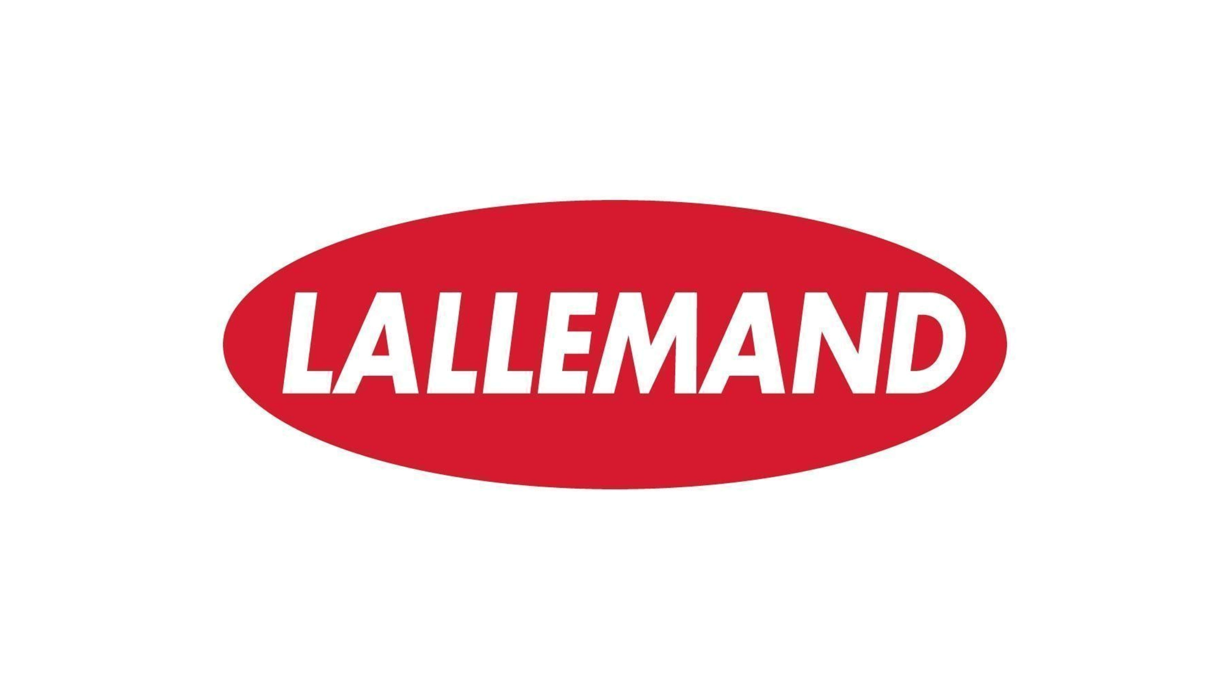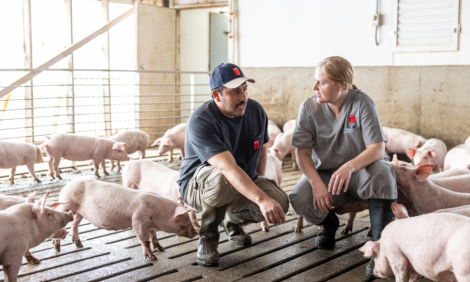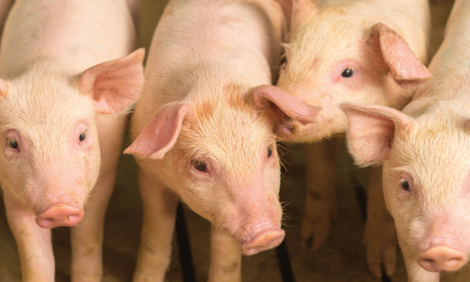



How a specific probiotic live yeast can support sow body condition and reproductive performance during heat stress periods
David Saornil Global Swine Applications Manager at Lallemand discusses the findings of a breakout studyCan you explain the physiological consequences of heat stress on sows?
Under heat stress, sows tend to limit heat-generating metabolic processes such as physical activities and eating. This leads to decreased appetite and feed intake, resulting in reduced milk production, poorer body condition, and lower litter performance. These effects ultimately impact both the sows' health and the growth of their litters.
Why is managing sow body condition during heat stress so important?
Managing sow body condition during heat stress is crucial because it ensures they have enough energy reserves for milk production, which is vital for piglet growth and health. It also helps prevent Second Litter Syndrome (SLS), characterized by poor reproductive performance in the second parity due to significant weight loss during the first lactation. Sows in good body condition at mating have better reproductive outcomes, including higher conception rates and more piglets born alive. Proper body condition also supports overall health and longevity, reducing the risk of prolapse and body lesions.
How can LEVUCELL SB help in this context?
A recent field study on 199 sows in a commercial farm in the Netherlands assessed the effects of LEVUCELL SB on sows’ performance and its carryover benefits on subsequent litter performance during and after heat stress. The treated group received LEVUCELL SB TITAN at 200g/ton of feed and enzymes from five days before farrowing until weaning. Sows experienced varying heat stress levels, with significant time spent in temperatures over 25°C, as measured by THI probes.
What were the key findings of this study?
The study revealed several key benefits of LEVUCELL SB:
- Colostrum quality: Brix measurements indicated that 85% of treated sows had good or very good colostrum samples, compared to 44% in the control group.
- Sow body condition: Treated sows had 33% less weight loss, 17% less fat loss, and 23% less loin loss compared to the control group (Figure 1). Despite similar feed intake (restricted sows) between both groups, treated sows maintained better body condition, suggesting more efficient utilization of body reserves and feed resources.
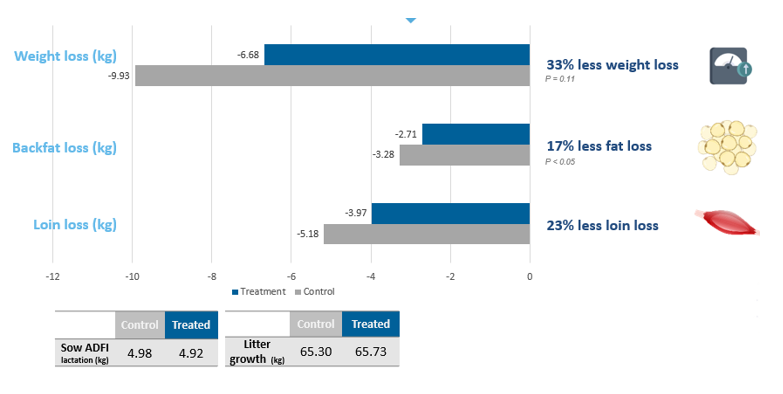
Figure 1. Body reserves mobilization in the control and treated groups. - Carryover benefits on subsequent litter performance: By maintaining better sow body condition, the treated sows had a carryover of benefits on litter performance during the following cycle, with an increase of 1.16 piglets born alive per litter (Figure 2).
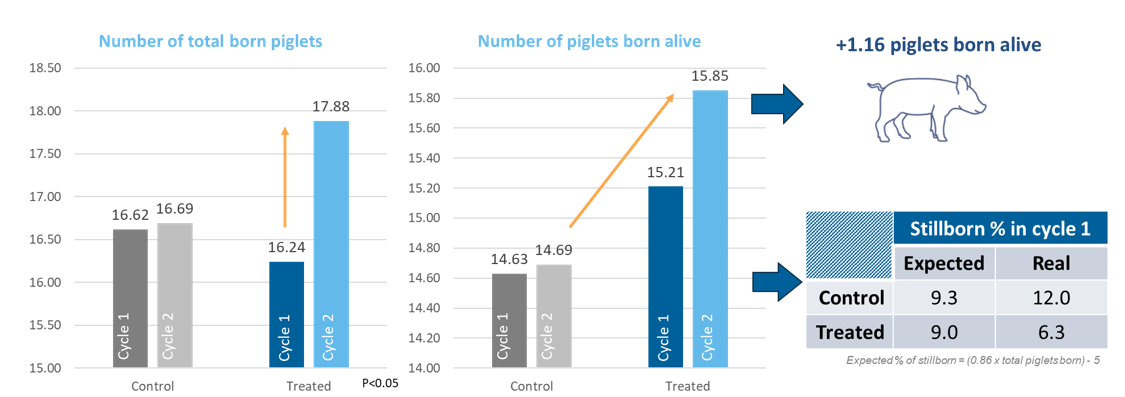
Figure 2. Litter performance during cycle 1 and cycle 2 in the control and treated groups. - Reduced removed sows: Thanks to the maintenance of better sow body condition and the improvement in litter performance, fewer sows were removed and kept for longer (Figure 3).
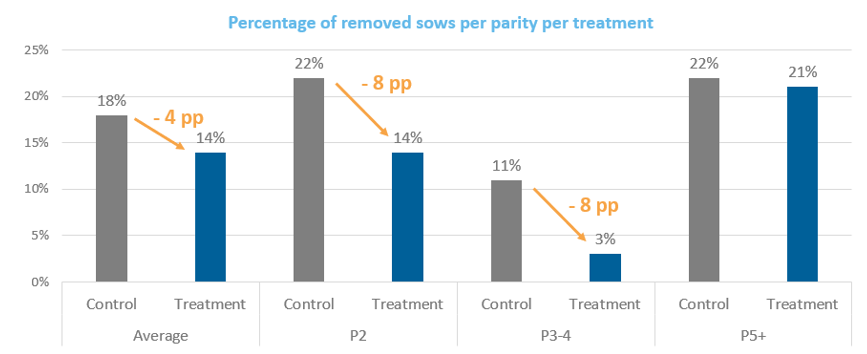
Figure 3. Removed sows per parity in the control and treated groups. - Energy utilization and efficiency: The study hypothesized that the maintained body condition and performance of treated sows could be due to better fiber valorization and reduced inflammation, previously documented benefits of LEVUCELL SB. Treated sows exported more energy into milk production while mobilizing less energy from fat and loin deposition, resulting in improved litter performance during the subsequent cycle.
- Economic benefits: For a 500-sow farm during heat stress periods, benefits include 0.43 kg more per litter, 1.16 more piglets born alive per litter, 10 kg less gestation feed per sow, and a 4% reduction in culling rate, totaling an estimated economic benefit of €15,500.
Any last words?
The field study results highlight that LEVUCELL SB helps maintain sow body condition, colostrum quality, and litter performance during heat stress. For more information, visit www.lallemandanimalnutrition.com.





